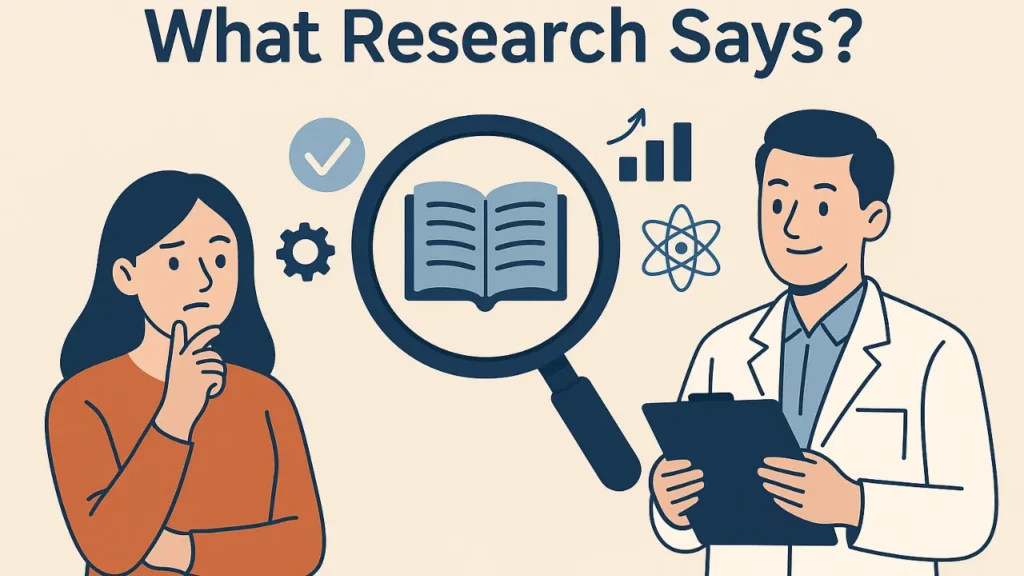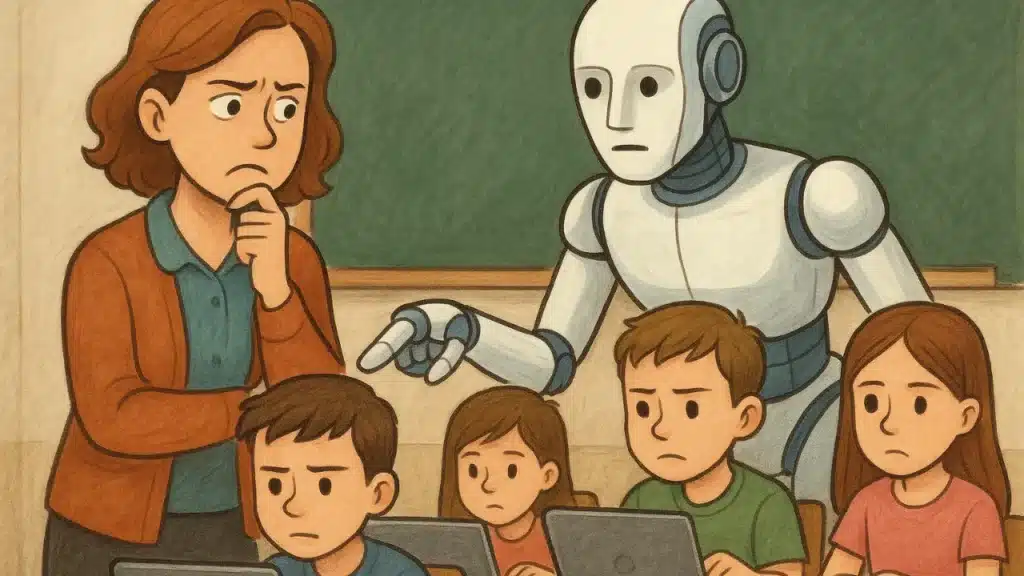Why AI should not be used in education?
It’s no secret that during the past year, artificial intelligence has played a much bigger role in our lives. The distinction between what humans can accomplish and what machines and computer programs can accomplish for us is becoming more and more hazy as platforms like ChatGPT proliferate.
Despite its widespread use, AI in education lacks a systematic approach. Given the numerous ethical and professional concerns that arise, it is irrational for teachers and students to use AI for assignments and tests.
To avoid AI detection, use Undetectable AI. It can do it in a single click.
Table of Contents
What Research Says?

In 2023, Tyton Partners conducted a nationwide survey and found that 27% of students reported regularly using generative AI tools, compared to just 9% of instructors. 71% of teachers have never used AI tools, while nearly half of students have at least one experience with them.
“Slowly and gradually, AI limits and replaces the human role in decision-making,” according to a June 2023 Nature article. Human mental faculties such as critical thinking, creative problem-solving, and intuitive analysis are being excluded from the decision-making process.”
In a GSE article, Martin West, dean of Harvard’s Graduate School of Education, acknowledges the potential of AI as a force for good in the field of education, but notes that “some uses of generative AI can undermine [students’] learning. Especially, when the tools are not used to enhance students’ learning but rather to perform the cognitive labor of thinking for them.
The Buffalo News claims that, at the very least, the consequences of using AI would typically be comparable to those of cheating at the University of Buffalo.
Twenty-two percent of college students have used artificial intelligence (AI) to complete assignments or tests, per a Best Colleges survey. Even though this percentage is small in comparison to the 43% of students who have used AI overall, it is still excessive. According to a Best Colleges survey, 60% of students have not received any training or direction on how to use AI in an ethical and responsible manner, and only one-third of students have heard explicit rules regarding its use at their schools.
Why AI Should Not Be Used in Education?

Here are a few of the most prevalent problems that educators face.
Security and Privacy Concerns
Concerns about privacy have existed for as long as artificial intelligence. People are concerned about what personal information is gathered, how it is used, and whether they have any control or knowledge over its use. Many express worries about how securely their data is kept and how well it is guarded against leaks.
Additional concerns include the possibility that others may view private and sensitive information, the spread of inaccurate or misleading information, and the growing ease with which others can obtain personal information about others.
Read Also >>> What is Bias Mitigation in AI?
In general, there are risks associated with data collection, processing, dissemination, and invasion (invasion of someone’s personal space, decisions, or activities).
Possible Prejudice in AI Systems
Research has indicated that generative pre-trained transformers, such as ChatGPT, exhibit a notable bias against non-native English speakers.
One study, for instance, found that more than half of writing samples written by non-native English speakers were incorrectly identified as AI-generated, whereas native English speakers had almost perfect accuracy.
The fact that GPT detectors are designed to identify more literary and complex language as more “human” is one aspect of the issue. As a result, authors who do not use such language run the risk of being unfairly flagged for AI plagiarism and classified as using AI-generated content.
False accusations of cheating against non-native English speakers can harm their academic careers and psychological well-being.
Decreased Human Engagement
An increasing reliance on AI may diminish the social-emotional components of learning and the interactions and relationships between teachers and students. Students’ interpersonal development and social skills will suffer if those interactions decline.
Teachers must be conscious of this and be careful to recognize and address their students’ social and emotional needs.
On the other hand, teachers should have more time to devote to establishing rapport with students and supporting their social and emotional development if administrative duties like lesson planning, grading, and student record maintenance are automated.
Numerous advantages, such as improved grades and increased college enrollment rates, have been demonstrated to arise from doing this. However, according to a recent survey, only 22% of students—a record low—think that their teachers make an effort to learn about their lives outside of school.
AI can be used by schools to improve teacher-student relationships, but doing so requires deliberate effort. It’s important to recognize and monitor this touchpoint.
High Costs of Implementation
Depending on how schools choose to use it, the cost of AI in education can vary significantly. While larger adaptive learning systems can cost tens of thousands of dollars per month, simple generative AI systems that teachers can use for lesson planning can be purchased for as little as $25 per month.
These bigger systems are also very costly to implement, and many schools, especially those in underprivileged areas, cannot afford them. Additionally, there are the continuous expenses of updating and maintaining the systems as well as teaching employees how to use them efficiently.
Misconduct in the Classroom
As previously mentioned, the main AI concerns expressed by educators are plagiarism and cheating. AI that is used to write papers, finish assignments, or take tests is unfair to students who do not cheat and compromises the educational process for those who do.
What sort of citizens will students become after completing their education if they are taught to cheat and take shortcuts in the classroom?
To guarantee that AI is not being used unethically, safeguards must be in place.
Unpredictability As Well As Inaccurate Data
The quality of AI depends on the algorithms that underpin it. It will produce inaccurate or biased information if the data it uses is erroneous or biased. Pupils must learn to assess and critically think about the information they encounter rather than simply taking it at face value.
To assist them in doing this, a wealth of educational resources are available online.
Conclusion: Why AI Should Not Be Used in Education?
All things considered, I don’t believe AI has a place in education—at least not yet. When instructors and professors rely too much on AI, they lose the relationship they should have with their students, and when students use AI to finish assignments rather than doing the work themselves, they are limiting their learning potential.
Given the increasing prevalence of AI in society, it is critical to comprehend both its positive effects and its potential drawbacks.


